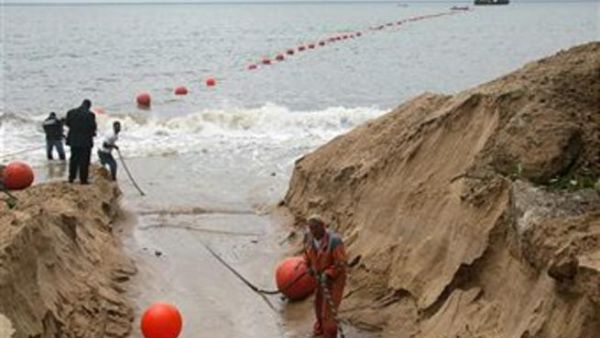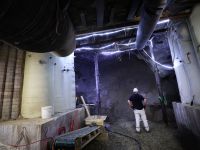Lebanon is expected to unveil a new optical submarine telecommunications cable, dubbed EUROPA, which is aimed at doubling international capacity, preventing Internet breakdown and radically improving the country’s forthcoming fiber-optics network, a senior telecoms official said Monday.
“We expect to iron out the final details of project within six months. The project [hopefully] will be finalized in 30 months from now,” Firas Abi-Nassif, adviser to the telecoms minister, told The Daily Star. The new cable will complement the IMEWE cable system which currently runs the 3G service and the next generation of DSL in Lebanon.
The new cable is expected to be completed in two years, just in time for a significant increase in demand on telecommunications expected because of the completion of the first phase of the fiber-optical network. The project is expected to cost the public treasury less than $10 million, Abi-Nassif said. In addition to bolstering the country’s overall telecommunications capacity, it aims to provide a stable backup to the present CADMOS and IMEWE cable systems.
“The CADMOS cable to Cyprus has been built since 1997. The average age of these cables is around 20 years, so we had to start thinking about alternatives,” Abi-Nassif explained. “IMEWE, as we saw last week, is prone to breakdowns. The new cable will avoid such situations in a very transparent and efficient manner.”
The system, he said, will form a bridge between the IMEWE cable system landing in Lebanon and ALEXANDROS – a higher capacity cable subsystem linking Europe and Egypt through Cyprus. This would thus allow for a telecoms bridge between Lebanon and Europe.
The cable aims to foster all telecommunications channels. It will have both data and voice telecommunications capacities. This allows bolstering Internet and telephone networks, Abi-Nassif added.
The Lebanese Telecommunications Ministry and the Cyprus Telecommunications Authority (Cyta) had confirmed, during an official meeting in Beirut last week, their readiness for collaborating in planning and constructing the new high-capacity cable.
A joint press release issued by both parties said the EUROPA cable is expected to be a repeaterless submarine cable with at least eight fiber-pairs.
At the conclusion of the meeting, Telecoms Minister Nicolas Sehnaoui expressed his support for the EUROPA Cable System, which he said “demonstrated Lebanon’s willingness to upgrade [the] international telecommunications field through cooperation with Cyprus.”
Cyta’s CEO Photis Savvides pointed out the EUROPA Cable System will foster a new partnership between Cyta and the Telecoms Ministry that will enhance the strategic role of Cyprus, as a major cable hub in the Eastern Mediterranean. It will also facilitate the Telecoms Ministry’s strategic goal to strengthen Lebanon’s position on the international telecommunications landscape as a bridge between Asia and Europe.
Sehnaoui said earlier that the speed and capacity of the Internet in Lebanon will rise dramatically over the next two to three years once the fiber-optic cable and the rest of the infrastructure project are completed.
Lebanon’s Internet speed has improved in the past three months although there are still complains about interruptions in the connection.








